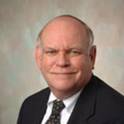Article
Bradwell v. Illinois: Chief Justice Chase's Dissent and the "Sphere of Women's Work"
Louisiana Law Review
(1999)
Abstract
Salmon P. Chase is remembered today, if at all, as a Secretary of the Treasury and as a Chief Judge of the United States Supreme Court. In his own time Chase was considered one of the nation's political giants. Abraham Lincoln described Chase as “one and a half times bigger than any other man” he had ever known. Carl Schurz's summary still echoes today:
More than anyone else he looked the great man. Tall, broad-shouldered, and proudly erect, . . . he was a pictureof intelligence, strength, courage and dignity. He looked as you would wish a statesman to look. Throughout his political career Chase sought ways to better the position of African-Americans. A man of deep convictions, he publicly and consistently advocated voting rights for African Americans as early as 1845. While his political affiliations often shifted, to the end of his life he was consistent in his advocation of universal male suffrage for African Americans. At a time when his lieutenants were negotiating for his election by the legislature to the United States Senate, Chase insisted that part of the “deal” would be the repeal of Ohio's “Black Laws” that discriminated against African Americans.
Chase devoted much of his legal talent to creating a nation-wide legal strategy by which slavery would be divorced from the national government and be solely dependent upon local government. His policy was summed up in the anti-slavery slogan he coined: “Freedom National, Slavery Local.” As Professor Harold Hyman noted, “[f]or a tumultuous one-third of a century [[[ Chase] was the antislavery crusaders' premier legal strategist.”
It was Chase's formal inquiry that prompted conservative United States Attorney General Edward Bates to issue an opinion concluding that, notwithstanding the Supreme Court's opinion in Dred Scott, free born African-Americans were citizens of the United States. It was Chase who, as Chief Justice, helped orchestrate the admission of the first African-American to the United States Supreme Court.
In spite of these egalitarian sentiments that our stereotypes suggest would be a hindrance to Chase's political career, he was twice elected Governor of the State of Ohio, twice elected to the United States Senate, and served as Secretary of the Treasury under President Lincoln. As Les Benedict has observed, Chase was a serious and important contender for the nomination of President of the United States in every election from 1856 through and including 1872.
As Chief Justice of the United States Supreme Court, Chase is chiefly remembered for his nationalistic opinion in Texas v. White and his dissent in the Legal Tender Cases. His judicial reputation no doubt suffered from Felix Frankfurter's conclusion that his commerce clause opinions were of no value to the modern era and the negative assessment of Chase's Chief Justiceship by Frankfurter student and protege Charles Fairman. Modern biographers have offered a significantly more balanced assessment of Chase.
Chase participated in some of the most important constitutional cases of his times, including authoring majority opinions in seven of the court's major reconstruction cases. These include his quasi-judicial activities in the impeachment trial of Andrew Johnson and his role as a dissenter in the first Fourteenth Amendment case to reach the United States Supreme Court, the Slaughter-House Cases. This essay explores the intersection between many of Chase's values in his dissent without opinion in the Fourteenth Amendment case of Bradwell v. Illinois.
Disciplines
Publication Date
1999
Citation Information
Richard L. Aynes, Bradwell v. Illinois: Chief Justice Chase's Dissent and the "Sphere of Women's Work," 59 Louisiana Law Review 521 (1999).
